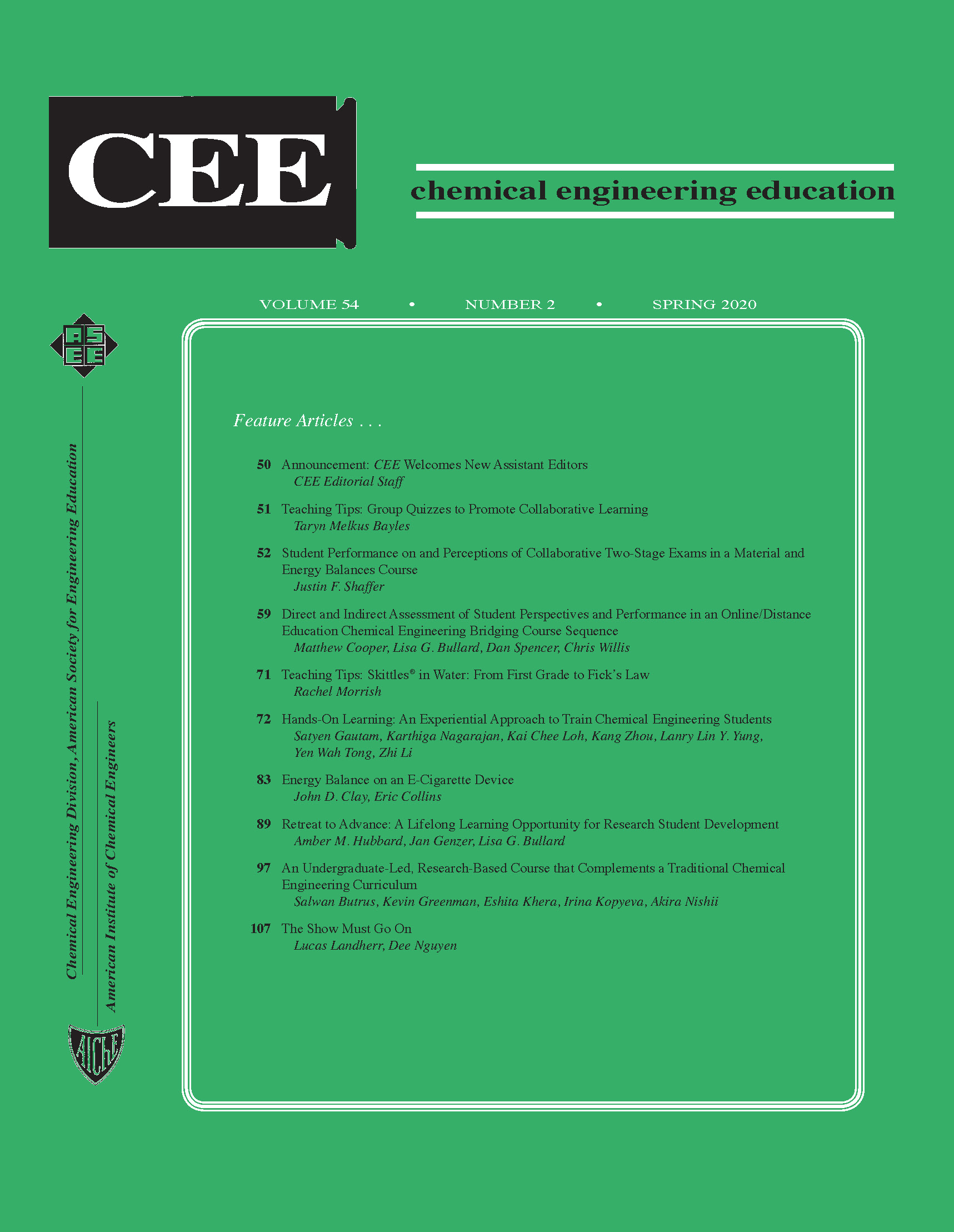Hands-On Learning: An Experiential Approach to Train Chemical Engineering Students
Resumo
The paper explores the effectiveness of hands-on learning (HOL) as a student-centered model to train first year chemical engineering undergraduates. The pedagogical design of the course uses laboratory sessions, lectures, reflection sessions, projects, and assessments to achieve the course learning outcomes. The adopted assessment methodology (100% continuous assessment with no end-of-semester examination) aims at evaluating the quality of learning and mastery of higher order skills by students. The student feedback has been encouraging with many students finding the HOL methodology useful in offering meaningful opportunities to gain knowledge and acquire a breadth of higher-order skills.


